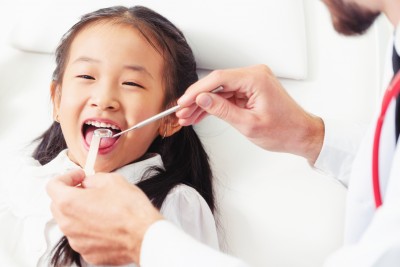Protecting Your Child’s Teeth
 Pediatric dentistry studies physiological and pathological processes in the child’s teeth. The tasks of pediatric dentistry are:
Pediatric dentistry studies physiological and pathological processes in the child’s teeth. The tasks of pediatric dentistry are:
- the prevention and treatment of clinical manifestations of pathological processes in the oral cavity and the teeth,
- building trust in children to accept dental work,
- advising the parents and children about possible to act preventively to preserve the mouth and teeth health.
In addition to prevention, early diagnosis of the disease and timely therapy are crucial for the achievement of children’s oral health. Success in working with children will depend on the age, psychophysical development, the preparedness for dental intervention, the dentist, the dental team, and ambiance.
The initial dental checkup by the first birthday
An initial dental checkup recommends in the period between the third and ninth months of the infant. It insists on two visits during the first year of life. This period is significant for assessing the risk of developing diseases and orthodontic anomalies and training parents on proper oral and dental hygiene in children.
The goals of the early first visit to the dentist are psychological, preventive, diagnostic, and therapeutic. An early visit to the dentist plays a crucial role in the prevention of dental anxiety in a child. It is also significant psychological support to the mother for preserving the oral health of the child.
The initial dental checkup is an opportunity for planning regular visits and follow-up of the child’s oral health.
Maintain dental cleaning routine from the beginning
Maintaining oral hygiene is acquired in childhood. The most important thing for children is to instill good habits from the very beginning and teach them what it means to maintain oral hygiene. Besides that, they must learn to go to the dentist regularly from their earliest childhood. It is never too early for a child to start coming to the dentist for checkups because that is the easiest way to overcome fear.
Immediately after the emergence of deciduous teeth, the child can start brushing with a small brush, possibly without toothpaste.
The main goal of self-brushing at an early age is to teach and accustom the child to daily oral hygiene. As a child grows older, his/her motor skills will gradually grow, and brushing will become more thorough.
Prevent baby bottle tooth decay
The most common disease in children at the youngest age is early childhood caries or circular caries. It is a consequence of irregularities in the diet – frequent night meals, giving (especially at night) sweetened drinks – tea, juices, and even prolonged breastfeeding. Equally problematic is the use of a baby bottle and finger sucking.
If your child uses the baby bottle at night, the fluid stays on the front teeth, and during sleep, the bacteria present in the baby’s mouth break down the sugars from the mentioned drinks and turn them into acids, which gradually lead to caries.
Do not allow your child to use a bottle and take sweetened drinks during the night after brushing teeth. If a baby bottle is necessary, fill it with water.
When the baby is one-year-old, start getting them used to drink from a cup. The goal is to stop using baby bottles by the first birthday.
Cut down their daily sugar intake
From the aspect of dental health, it would be best that the child does not eat between meals. Nibbling several times causes the sugar to be continuously in the mouth, which causes caries.
It is crucial to minimize the daily intake of sugar. Namely, the period between meals is significant for returning the PH value to normal. Snacking, no matter which foods, prevents the regulation of the natural PH value in the mouth.
Therefore, only 100% natural juices are recommended, at most 100-150 ml per day.
Use of a pacifier – discontinue after 3 years old
Prolonged use of pacifiers after the age of 2-3 can lead to disorders in the arrangement of teeth and the occurrence of orthodontic anomalies.
Children who use a pacifier also develop the habit of sucking the thumb, which encourages protruding front teeth and open bite.
Oral health at the earliest age can preserve by a pediatric dentist who is interested, shows empathy, and continuously invests in expertise. The role of parents is also unavoidable, primarily in cooperation with a dentist and educating the child.
For more information regarding your dental health, please give Dr. Apsey of Smile Brightly Dental a call today! We are located in Warren, MI and we can be reached at 586-573-7700!
